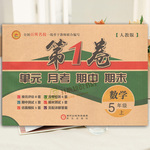题目内容
该短文共有十处错误,每句中最多有两处,错误涉及一个单词的增加、删除或修改。
增加:在缺词处加一个漏字符号( ^), 并在此符号下面写出该加的词。
删除:把多余的词用斜线( \)划掉。
修改: 在错的词下划一横线, 并在该词下面写出修改后的词。
注意::1、每处错误及其修改均仅限一词;
2、只允许修改十处, 多者(从第11处起) 不计分。
I first met Li Ming at a friend birthday party five years ago. Then I invited Li Ming over in my place. We listen to my CDs together and soon became good friends.
Three years ago, Li Ming’s parents invited I to spend two wonderful week in Qingdao with them during the summer holiday. Li Ming and I loved walking along the beautifully beaches there.
Last year I was ill but had to stay in hospital for a week. He came see me every day.
Then, her father has changed jobs and they moved to another city. Since then we haven’t see each other much, but we’ve kept writing to each other.
1.friend ---friend’s
2.over后加to
3.listen ----listened
4.I----me
5.week----weeks
6.beautifully ----beautiful
7.but ---and
8.came后加 to
9.her ---- his
10.much 去掉
【解析】
试题分析:考查篇章理解及语法知识
1.friend改为friend’s,这里是指朋友的聚会,应用名词所有格,故改为friend’s party。
2.over后加to,over to是“在”的意思,固定短语,原句表达不完整。
3.listen 改为listened ,原句We listen to my CDs together and soon became good friends中,整句时态不一致,由became可知应采用过去式,故改为listened。
4.I改为me,此句中我做宾语,故采用宾格me。
5.week改为weeks,two wonderful week,两个星期应该采用复数形式,故改为weeks。
6.beautifully改为beautiful,原句Li Ming and I loved walking along the beautifully beaches there中“美丽的”修饰海滩,应该用形容词而不是副词,故改为beautiful。
7.but改为and ,but表示转折关系,但此处是并列关系,应该为and。
8.came后加 to,来看某人,固定搭配为come to see sb,原句缺少介词,应该在came后加to。
9.her 改为his ,根据前文可知Li Ming是个男孩,应该用his。
10.much 去掉,Since then we haven’t see each other意为从那以后我们再未见过彼此,这就是完整表达,much表示非常、很多,放在此处是赘余的,应该去掉。
考点:考查篇章理解及语法知识

 期末1卷素质教育评估卷系列答案
期末1卷素质教育评估卷系列答案